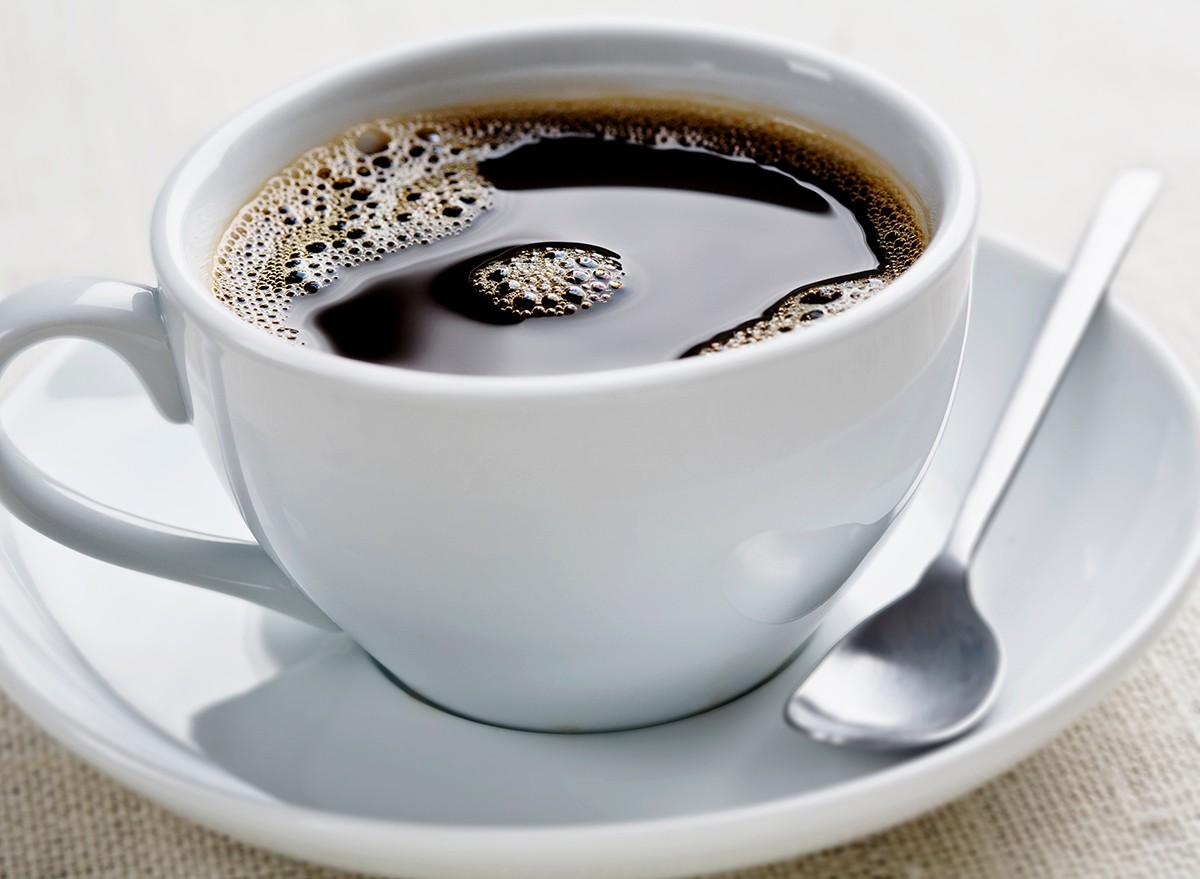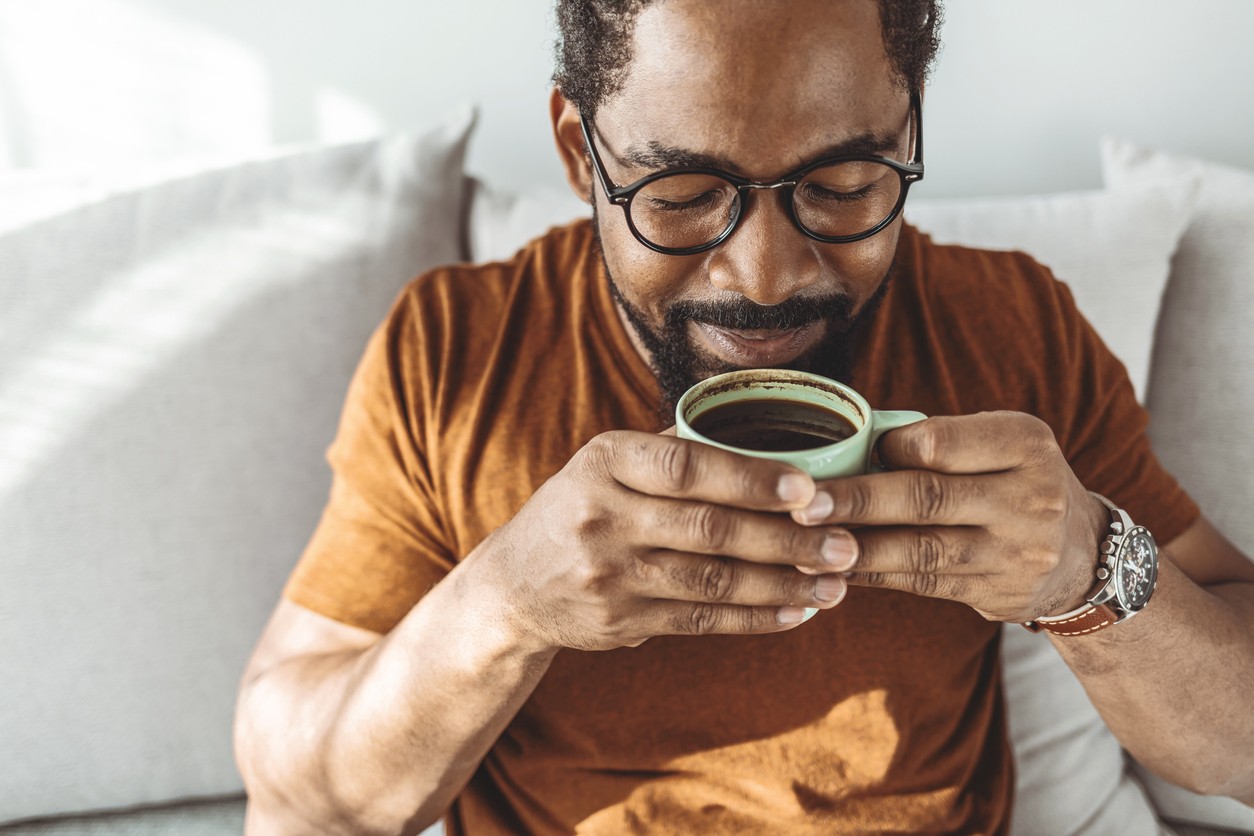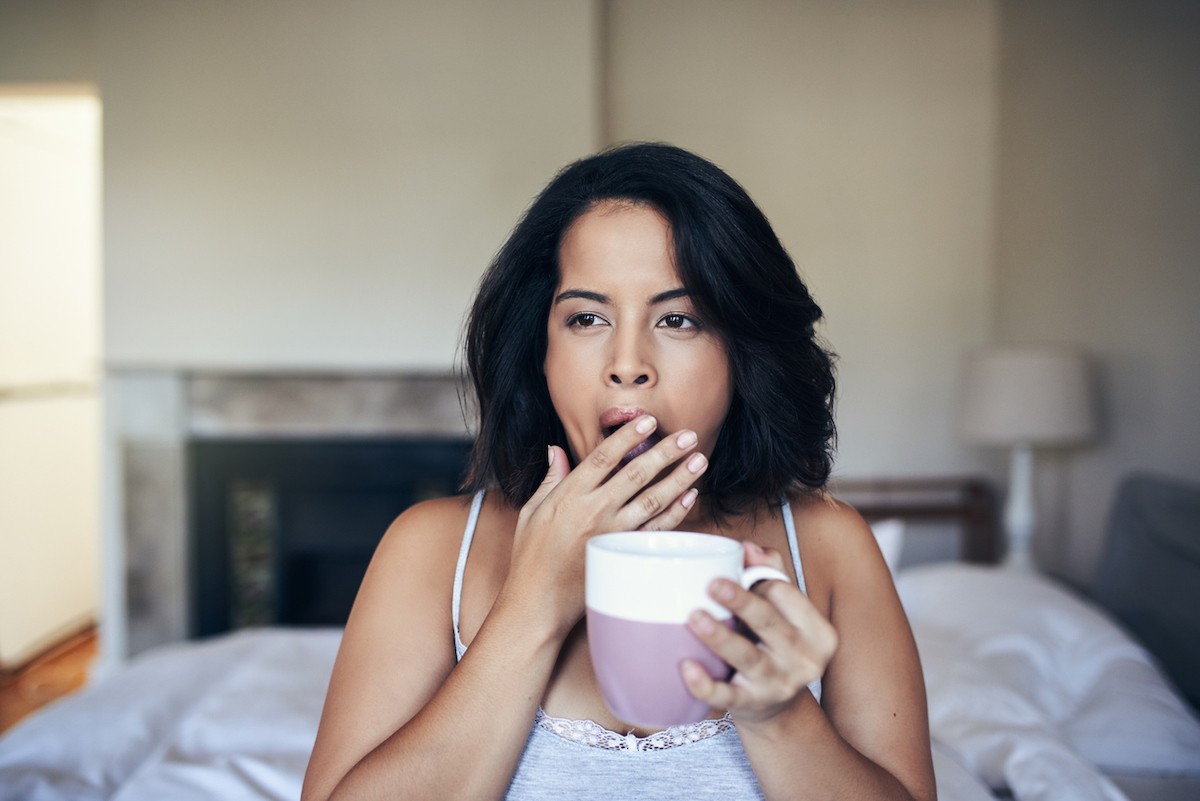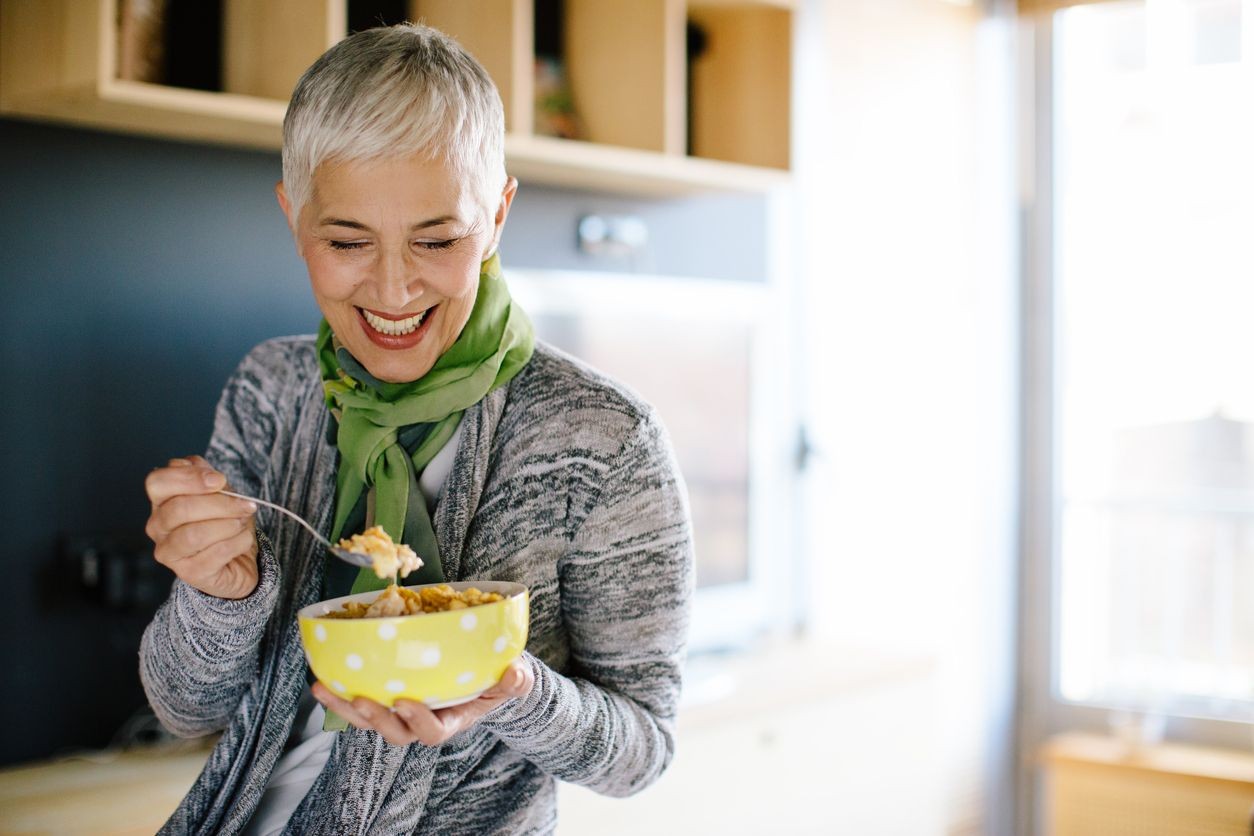If You’re Over 50, Avoid This Morning Habit That Could Spike Your Blood Sugar

It’s not just obviously-sugary food that can cause a blood sugar rollercoaster—even food that is marketed as “healthy” can spike blood sugar and cause health issues. “High blood sugar levels in the diabetes and prediabetes ranges can cause serious damage throughout the body,” registered dietitian nutritionist Jill Weisenberger tells AARP. “We once thought that only people who had diabetes for some length of time had these problems. Now we have data that even people with prediabetes have a number of problems due to high blood sugar.” Here’s one surprising food that could cause your blood sugar to spike.
RELATED: The No. 1 Snack for Stable Blood Sugar Levels.
Caffeine and Blood Sugar

Caffeine may spike blood sugar for some people, experts warn. “For most young, healthy adults, caffeine doesn’t appear to noticeably affect blood sugar levels. On average, having up to 400 milligrams of caffeine per day appears to be safe. However, caffeine affects every person differently,” says the Mayo Clinic. “For someone who already has diabetes, the effects of caffeine on insulin action may be associated with higher or lower blood sugar levels. For some people with diabetes, about 200 milligrams of caffeine — the equivalent of one to two 8-ounce cups of brewed black coffee — may cause this effect. If you have diabetes or you’re struggling to control your blood sugar levels, limiting the amount of caffeine in your diet may be beneficial.”
Caffeine Sensitivity After 50

Sensitivity to caffeine may change with age. “It is indeed possible to develop caffeine sensitivity,” say Elizabeth Ko, MD, and Eve M. Glazier, MD, via UCLA Health. “Due to certain changes that take place in our bodies as we grow older, this becomes more common as we age. Research shows that older adults clear caffeine from the body more slowly than younger people.”
Morning Coffee

A study from the University of Bath shows drinking coffee first-thing in the morning on an empty stomach can negatively impact both metabolism and blood sugar. “We know that nearly half of us will wake in the morning and, before doing anything else, drink coffee – intuitively the more tired we feel, the stronger the coffee,” Professor James Betts, co-director of the Centre for Nutrition, Exercise and Metabolism at the University of Bath, tells The Independent.
RELATED: I Quit Coffee for a Month and This Is What Surprised Me Most.
Eat First, Drink Second

The Bath study emphasizes the importance of good sleep as well as food before coffee for blood sugar control. “This study is important and has far-reaching health implications, as up until now we have had limited knowledge about what this is doing to our bodies, in particular for our metabolic and blood sugar control,” Professor Betts says. “Put simply, our blood sugar control is impaired when the first thing our bodies come into contact with is coffee especially after a night of disrupted sleep. We might improve this by eating first and then drinking coffee later if we feel we still need it. Knowing this can have important health benefits for us all.”
Avoid the Jitters

Does this mean you have to give up your beloved coffee or tea after 50? Not at all—just be mindful of how it makes you feel. “An 8-ounce cup of coffee delivers between 80 and 100 milligrams of caffeine,” Drs Ko and Glazier say. “Research shows that for older adults, amounts in the range of 50 to 100 mg are well-tolerated. To manage caffeine sensitivity, try limiting yourself to one cup a day. And if multiple cups are your routine, consider switching to a half-caf blend.”